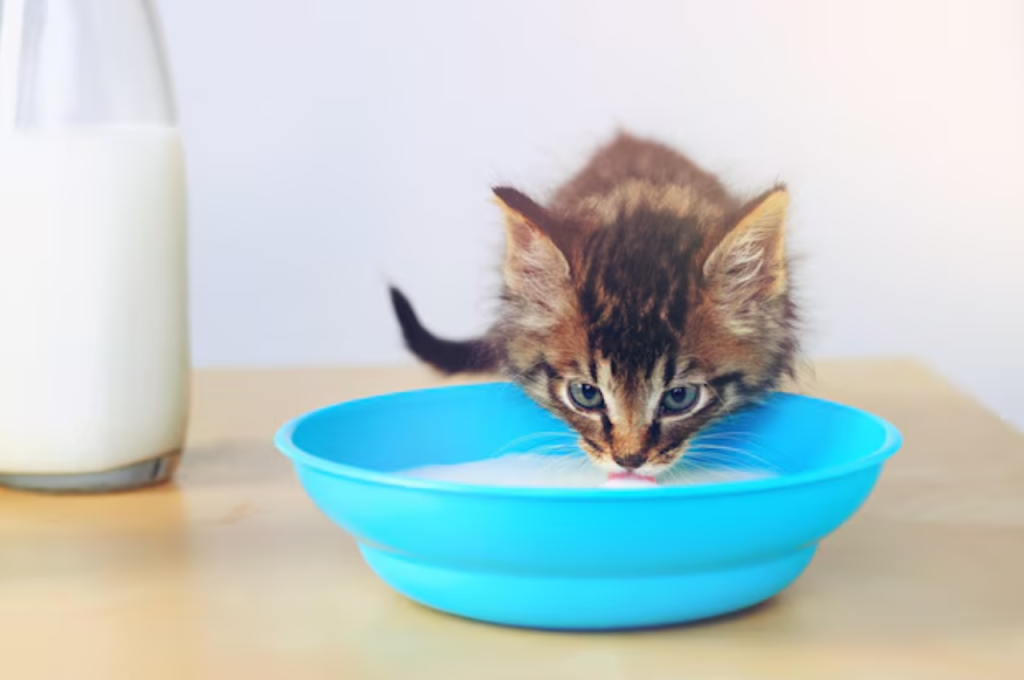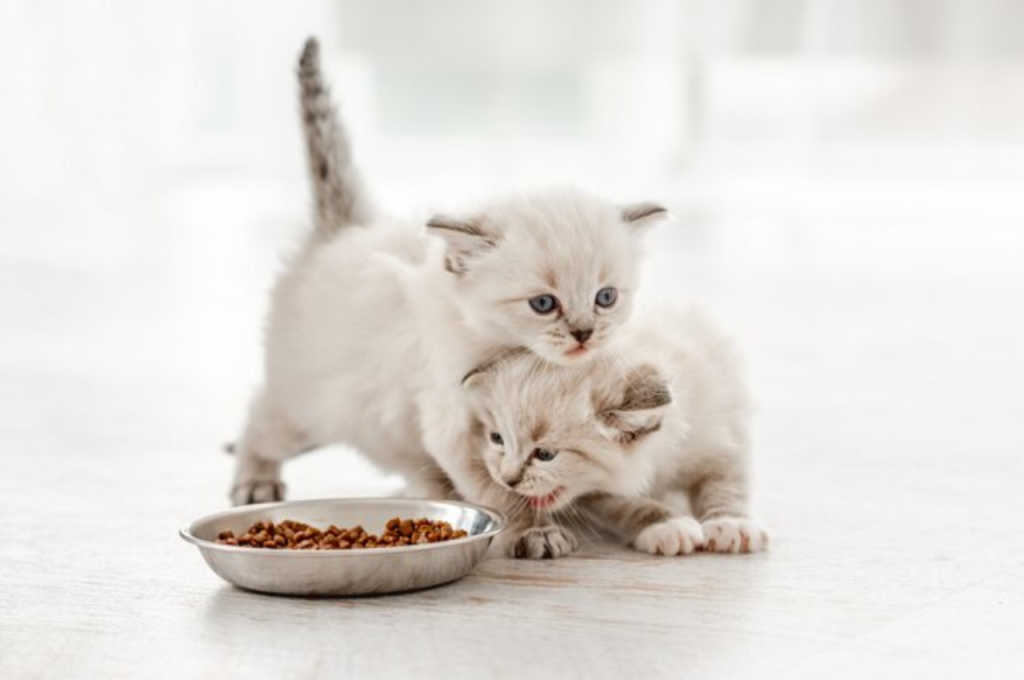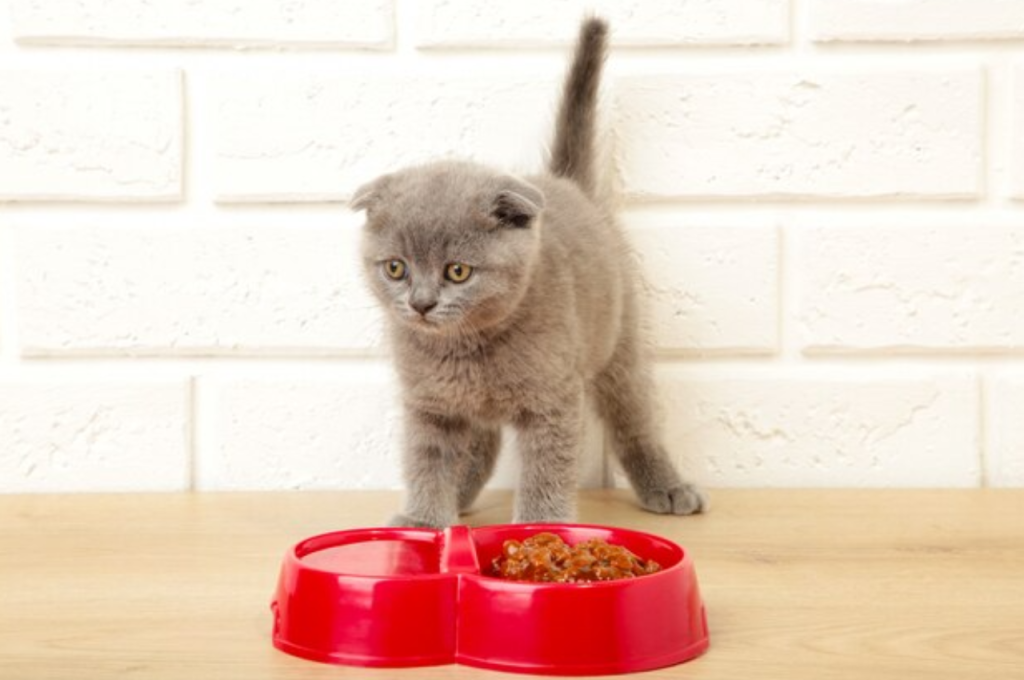Baby cat food is specially formulated to meet the unique nutritional needs of young kittens. It provides essential nutrients for healthy growth and development, including high levels of protein and fats.
When it comes to ensuring the health and well-being of your new furry family member, choosing the right food is crucial. Baby cat food is designed to support their growing bodies and immune systems during this critical stage of life.
With a perfect balance of nutrients, vitamins, and minerals, baby cat food promotes optimal health and vitality in kittens. Whether you have a playful tabby or a curious Siamese, providing them with the best nutrition right from the start will set them up for a happy and healthy life.
The Importance of Proper Nutrition for Baby Cats
Baby cats, just like human babies, need proper nutrition to grow and develop healthily. Providing the right balance of nutrients is crucial for their overall well-being and long-term health.

The Essential Nutrients for Baby Cats
- Proteins: Crucial for muscle growth and development.
- Fats: Provide energy and support brain development.
- Carbohydrates: A source of energy for active kittens.
- Vitamins and Minerals: Essential for a strong immune system and overall health.
- Water: Vital for hydration and proper bodily functions.
Benefits of Providing Nutritious Food
Feeding baby cats with nutritious food leads to:
- Healthy growth and development.
- Strong immune system.
- Optimal energy levels.
- Shiny coat and healthy skin.
- Prevention of health issues in adulthood.
Understanding Baby Cat Food
Baby cat food is specially formulated to meet the unique nutritional needs of growing kittens. Made with high-quality ingredients, it provides essential nutrients for healthy development and supports their overall growth.
Understanding Baby Cat Food Choosing the right food for your baby cat is crucial for their development, health, and overall well-being. Baby cats have specific dietary requirements that differ from those of adult cats. The right nutrition will support their growth, immune system, and digestive health.
Types of Baby Cat Food Available
When it comes to baby cat food, there are several options available, each catering to different nutritional needs. These include:
1. Dry Kibble: Convenient and economical, this type of baby cat food helps maintain dental health.
2. Canned Food: Offers hydration and can aid in weight management for your baby cat.
3. Semi-Moist Food: A palatable option that may appeal to picky eaters.
Things to Consider When Choosing Baby Cat Food
Selecting the right baby cat food involves considering several factors, such as:
– Nutritional Balance: Ensure the food provides a balanced diet, including essential vitamins and minerals.
– Age and Size: Choose food appropriate for the age and size of your baby cat for optimal development.
– Ingredients: Look for high-quality protein sources, limited fillers, and essential fatty acids.
Understanding the various types of baby cat food available and considering essential factors when making a choice can help ensure your baby cat receives the nutrition they needs for a healthy start in life.
Making The Transition to Solid Food
One of the most important milestones in a kitten’s life is the transition from liquid to solid food. This process can be both exciting and challenging for both the kitten and its owner. To ensure a smooth transition, it is important to pay attention to the signs that indicate your kitten is ready for solid food and follow some essential tips for introducing it.
Signs That Your Kitten Is Ready
Before introducing solid food to your kitten, it is crucial to make sure that they are physically and developmentally ready for this significant change. Here are some signs that indicate your kitten is ready to make the transition to solid food:
- Age: Generally, kittens can start eating solid food between 4 to 6 weeks of age.
- Chewing behavior: If you notice your kitten attempting to chew on objects or nibble at your fingers, it may indicate they are ready for solid food.
- Curiosity: Kittens who show interest in their mother’s or littermates’ food are likely ready to explore solid food options.
- Stable coordination: Your kitten should be able to balance on all four limbs and demonstrate stability before introducing solid food.
Tips for Introducing Solid Food
Once you have observed the signs that your kitten is ready for solid food, follow these helpful tips to ensure a successful transition:
- Choose the right food: Select a high-quality, age-appropriate baby cat food that offers a balanced diet and meets all their nutritional needs. Consult your veterinarian for specific recommendations.
- Start gradually: Begin by mixing a small amount of wet or dry food with formula or the mother’s milk replacement and offer it to your kitten. Gradually increase the amount of solid food over time.
- Use shallow plates or saucers: Provide your kitten with a flat surface to eat from, making it easier for them to access and enjoy their food.
- Patiently encourage: Gently guide your kitten towards the food and show them how to eat it. You can use your finger to dip into the food and let them lick it off.
- Monitor their progress: Observe your kitten’s response to solid food and ensure they are eating and digesting it well. If any issues arise, consult your veterinarian for guidance.
Making the transition to solid food is an important milestone in your kitten’s growth. By understanding the signs that indicate their readiness and following these tips for introducing solid food, you can support your kitten’s healthy development and ensure a smooth and enjoyable transition.
Homemade vs. Commercial Baby Cat Food
Discover the ultimate choice for your baby cat’s nutrition with a comparison between homemade and commercial baby cat food. Find out which option best suits your furry friend’s needs with a simple and informative guide.
When it comes to providing our fur babies with the best nutrition, choosing between homemade and commercial baby cat food can be a tough decision. Both options have their advantages and disadvantages, so it’s essential to weigh your options carefully. Let’s explore the pros and cons of homemade baby cat food and the benefits of going for the commercial route.

Pros and Cons of Homemade Baby Cat Food
Pros:
- Control over ingredients: Homemade baby cat food allows you to have full control over the quality of ingredients you use, ensuring your feline friend gets only the best.
- Freshness and variety: With homemade food, you can provide your baby cat with a greater variety of fresh ingredients, offering a wider range of flavors and textures.
- Customization: You can tailor the recipe to cater to any specific dietary needs or food preferences your cat may have.
- Bonding experience: Preparing homemade food for your baby cat can become a fun bonding activity, strengthening your relationship.
Cons:
- Time-consuming: Creating homemade baby cat food requires time and effort to prepare, measure, and cook the ingredients.
- Lack of essential nutrients: Ensuring a homemade diet provides all the necessary nutrients can be challenging, potentially leading to nutrient imbalances or deficiencies.
- Meal planning: You’ll need to plan and research to ensure balanced meals, as well as maintain proper portion sizes.
- Risk of contamination: Contamination risks can arise if not handled and stored correctly, potentially leading to foodborne illnesses.
Benefits of Commercial Baby Cat Food
Benefits:
- Nutritional balance: Commercial baby cat food is formulated by experts to meet all the nutritional needs of growing cats, ensuring they receive the right balance of proteins, fats, and carbohydrates.
- Simplicity and convenience: With commercial options, all the work is done for you. No fussing with meal planning, preparation, or cooking.
- Quality control: Reputable brands follow strict quality control regulations to maintain high standards and ensure your baby cat gets safe and nutritious meals.
- Variety and flavor options: Commercial baby cat food offers a wide range of flavors and textures to cater to your furry friend’s preferences.
Common Mistakes to Avoid When Feeding Baby Cats
Baby cats require special attention when it comes to their diet. Feeding your furball the right way is vital for their growth and well-being. However, there are some common mistakes that you need to avoid when feeding baby cats to ensure they stay healthy and happy.
Overfeeding
One of the most common mistakes that cat owners make is overfeeding their furry friends. Baby cats have small stomachs and can easily overeat, leading to obesity and related health issues. It’s important to follow the feeding guidelines provided by the food manufacturer and to monitor your cat’s weight and body condition regularly.
Ignoring Food Allergies
Another mistake to steer clear of is ignoring potential food allergies in your baby cat. Cats, like humans, can develop allergies to certain ingredients in their food. Failure to recognize and address these allergies can lead to discomfort, skin issues, and digestive problems. Always pay attention to any signs of allergic reactions and consult a veterinarian if you suspect food allergies in your baby cat.
Special Dietary Needs for Baby Cats
Baby cats, like human infants, have special dietary needs that are crucial for their growth and development. These needs must be carefully considered to ensure they receive the essential nutrients for their well-being. In this article, we will delve into the health conditions that may require special diets, as well as the supplements that can support the nutrition of baby cats.
Health Conditions Requiring Special Diets
Baby cats are susceptible to certain health conditions that may necessitate special dietary considerations. Some of these conditions include:
- Food allergies
- Digestive issues
- Developmental disorders
As baby cats are more vulnerable to these problems, it’s important to tailor their diets to address these specific health concerns. Consultation with a veterinarian is crucial to determine the appropriate diet modifications for the affected kittens.
Supplements for Baby Cats
Supplements can play a vital role in supporting the nutrition of baby cats, especially if they have specific dietary requirements. Certain supplements that may benefit baby cats include:
- Omega-3 fatty acids for coat and skin health.
- Probiotics for gut health.
- Calcium for bone development.
When introducing supplements to a baby cat’s diet, it’s essential to do so under the guidance of a veterinarian to ensure the proper dosage and suitability for the kitten’s individual needs.
Recipes for Homemade Baby Cat Food
Discover nutritious homemade baby cat food recipes to give your little feline friend high-quality nourishment. Prepare tasty, wholesome meals using simple ingredients for a happy and healthy kitten. Feed your baby cat with love and care to support their growth and well-being.

Balanced Chicken and Vegetable Recipe
Ingredients: Chicken, carrots, peas, chicken broth.
Instructions:
- Cook the chicken until tender.
- Steam carrots and peas until soft.
- Blend all ingredients with chicken broth.
- Serve to your baby cat in small portions.
Fish Delight for Young Felines
Ingredients: Salmon, sweet potato, green beans.
Instructions:
- Bake salmon until cooked.
- Mash sweet potatoes and steamed green beans.
- Mix all ingredients and form into small balls.
- Refrigerate and give small portions to your young feline.
Frequently Asked Questions for Baby Cat Food
FAQ (Frequently Asked Questions) about Baby Cat Food:
1. What is the best food for a baby cat?
The best food for a baby cat is specially formulated kitten food that provides essential nutrients for growth and development. Look for high-quality protein, essential vitamins, and minerals to support their rapid growth and immune system.
2. How often should I feed baby cat food?
Baby cats should be fed small, frequent meals throughout the day. It’s recommended to feed them 4-6 times a day until they are around 6 months old. After that, you can transition to 2-3 meals a day to support their nutritional needs.
3. Can I feed adult cat food to a baby cat?
No, it’s not recommended to feed adult cat food to a baby cat as it may not provide the essential nutrients required for their growth and development. Instead, opt for specially formulated kitten food that meets their specific nutritional needs during this crucial stage of life.
4. Should I mix wet and dry baby cat food?
Yes, it’s beneficial to provide a combination of wet and dry baby cat food. Wet food helps with hydration while dry food aids in dental health. Mixing the two can provide a balanced diet and cater to various preferences of the baby cat, ensuring they receive the necessary nutrients.
Conclusion
Feeding your baby cat the right food is crucial for their health and development. Choosing high-quality, nutrient-rich baby cat food can promote growth and provide essential vitamins and minerals. With a balanced diet, your fur baby can thrive and live a long, happy life.
Prioritize their nutrition for a brighter future.
